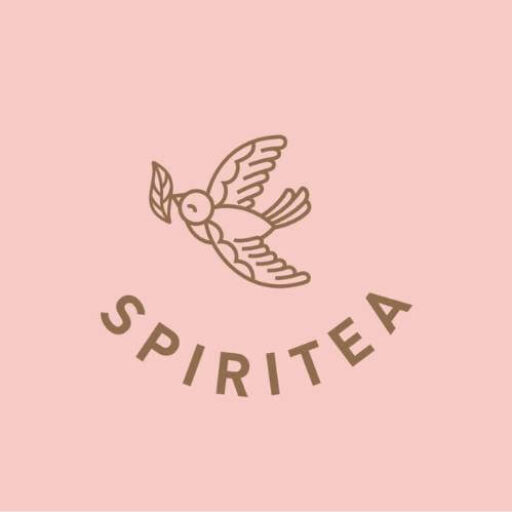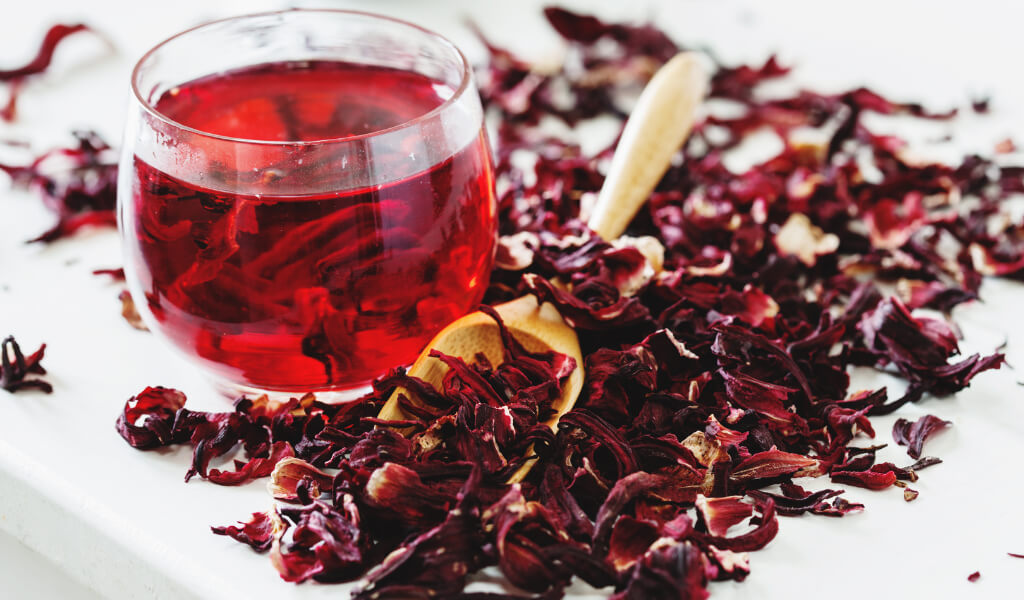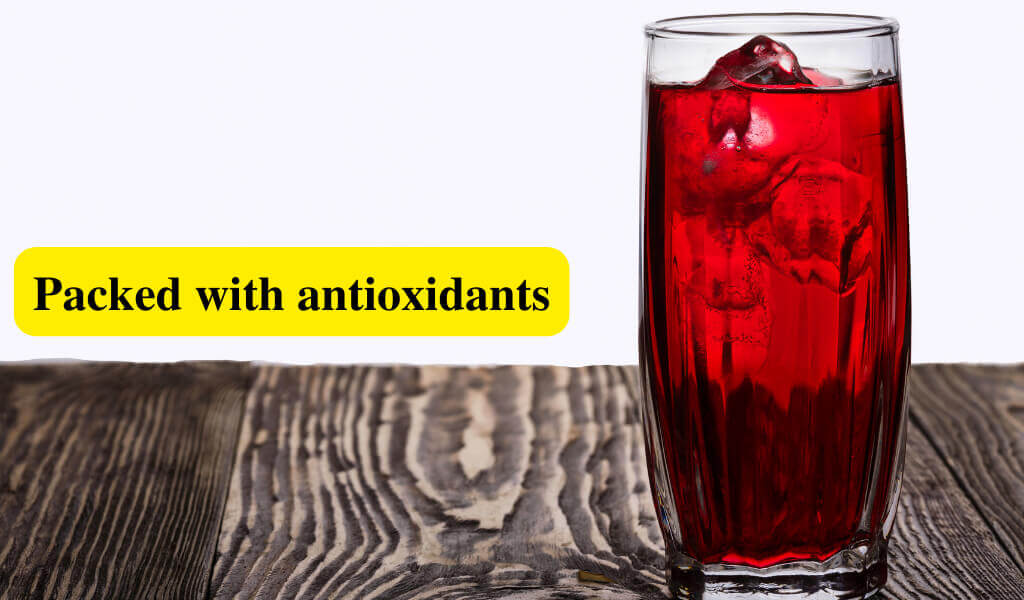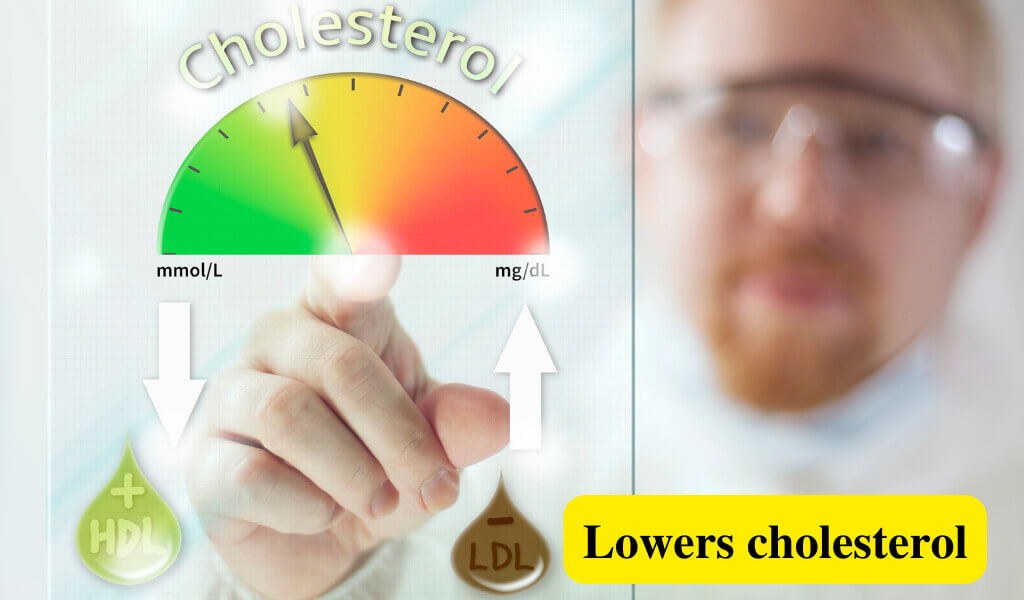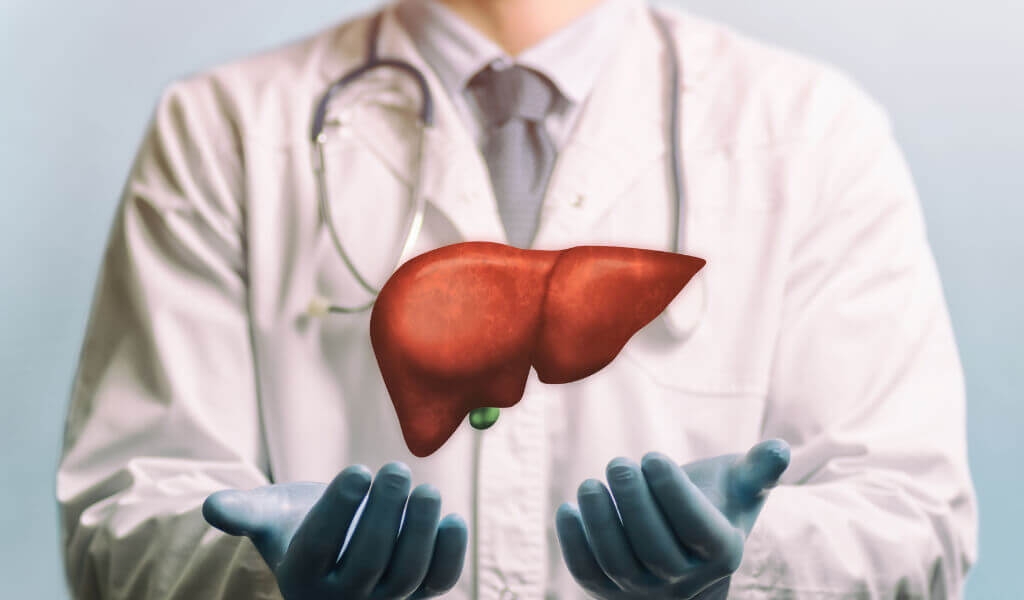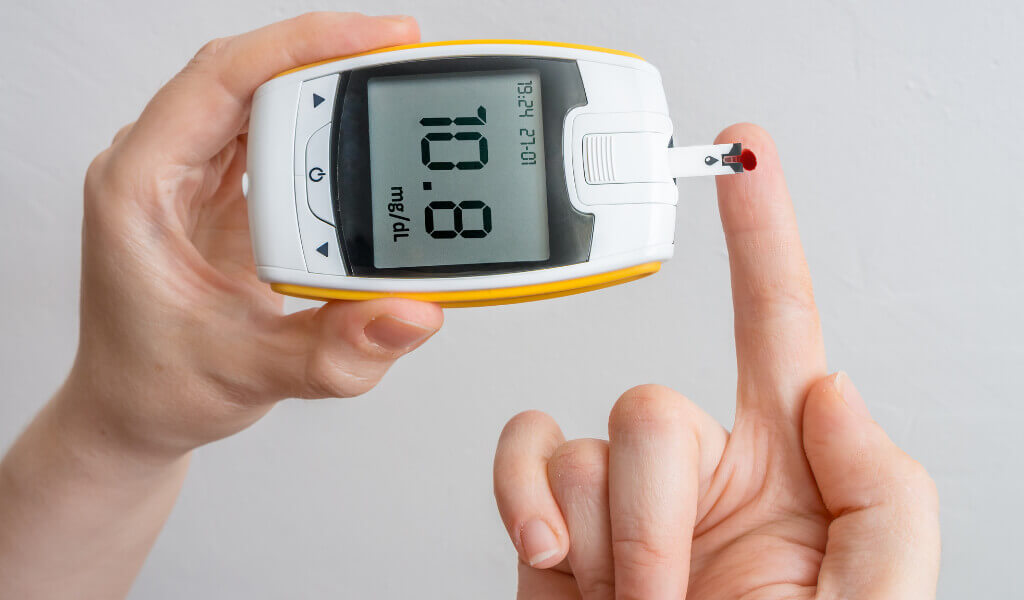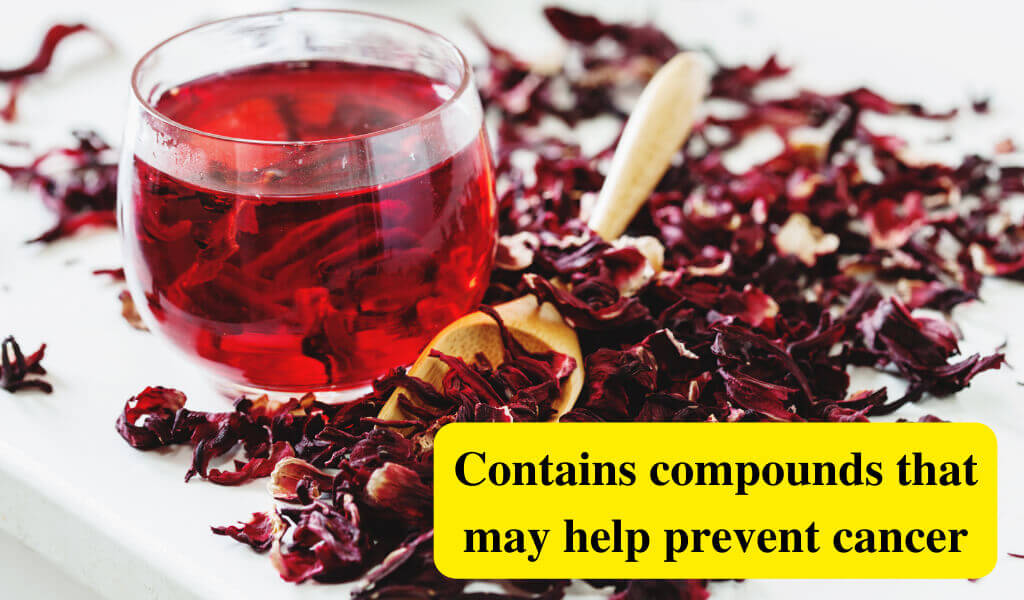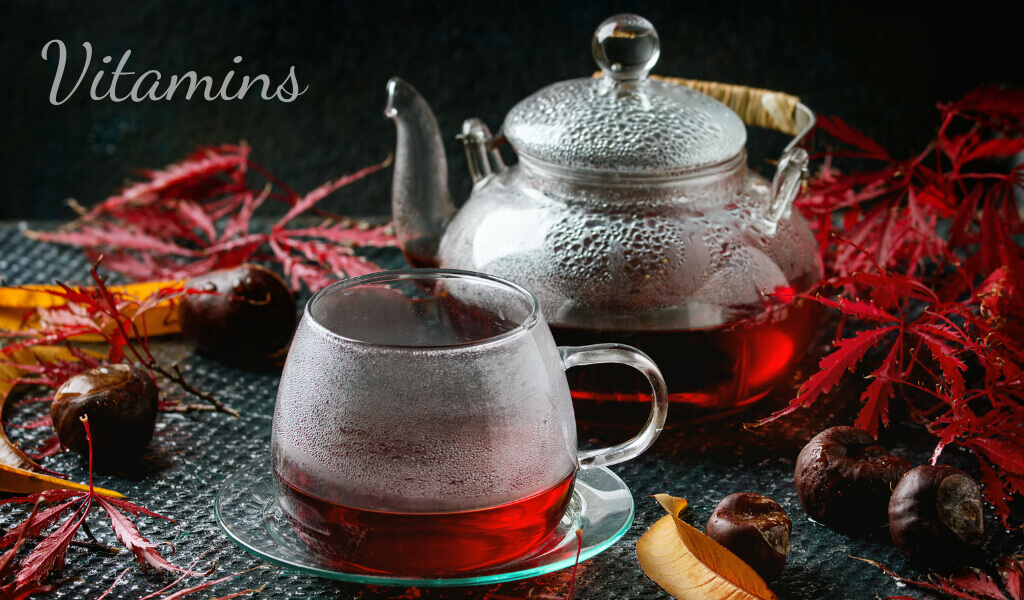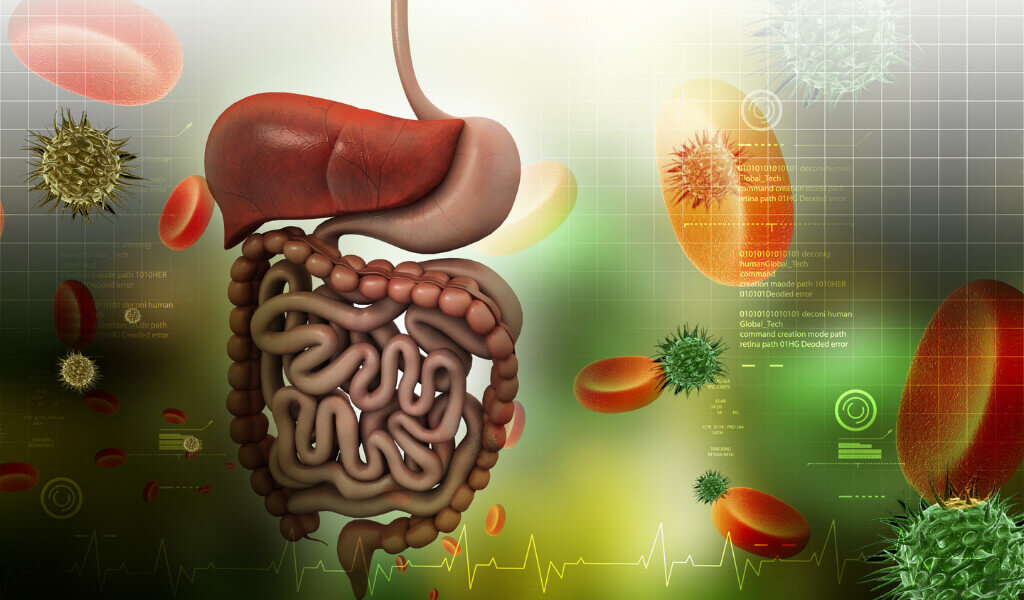If you’re curious about the Hibiscus tea benefits, you’re in the right place!
In this article, we’ll explore the many benefits of hibiscus tea, including how it may help with issues like high blood pressure, high cholesterol, and more.
But first, let’s start with the basics – what exactly is hibiscus tea, what is Hibiscus tea good for, and why is it becoming such a popular choice among health-conscious individuals and tea enthusiasts alike? Are you curious to learn more? Then keep reading!
Quotes of tea with You
“Tea is an act complete in its simplicity.” – Thich Nhat Hanh
Is hibiscus good for you?
Hibiscus has been used for centuries in food and traditional medicine, with its seeds, flowers, and leaves. It stems from offering a variety of health benefits. Hibiscus flavoring is all the rage these days! You can enjoy it in jams, jellies, sauces, syrups, and teas from Western Africa, Central and South America, and the Caribbean. It’s everywhere!
This colorful ingredient, also known as roselle or sorrel, has been traditionally used to treat various ailments, from high blood pressure to indigestion.
Luckily, modern science confirms the many cardiovascular health hibiscus tea benefits, but further research is necessary to understand fully how hibiscus supplements can help treat certain conditions, as advised by Czerwony.
Nutrition Facts For Hibiscus Tea Benefits
Nutrition facts table
Let’s take a look at the nutritional content of hibiscus tea. First, check the nutrition of roselle, the raw material of hibiscus tea, on the table.
| Roselle (raw) per | 100g |
| Moisture | 86.6g |
| Calorie | 49kcal |
| Protein | 0.96g |
| Calcium | 215mg |
| Magnesium | 51mg |
| Iron | 1.48 |
| Potassium | 208mg |
| Vitamin C | 12mg |
| Niacin | 0.31mg |
| Vitamin A | 14 μgRAE |
Source: Roselle, raw -FoodData Central Search Results(USDA)
Take a look at the table. You’ll see that roselle contains various minerals and vitamins, such as C and A.
On top of that, it’s loaded with polyphenols (pigments) and organic acids such as citric and malic acid.
Now, let’s dive deeper into the nutrients that roselle hibiscus tea is especially abundant in.
The sour ingredient, Citric Acid
One of the distinguishing features of hibiscus tea is its bad taste, which surprises first-time drinkers. This sourness comes from an organic acid called citric acid, also found in vitamin C-rich foods. (Fun fact: vitamin C itself isn’t sour!)
Studies have suggested that citric acid can help reduce fatigue and boost mineral absorption. This may be because when we’re tired, our bodies tend to crave sour or sweet flavors, and citric acid plays a role in energy production.
Read More: Get ready to tantalize your taste buds with hibiscus tea’s vibrant and tangy flavor! Follow these simple steps on how to make Hibiscus tea and enjoy a homemade cup in no time!
Adjusts water balance “potassium”
Hibiscus herbal tea contains a lot of potassium, an essential mineral in our bodies. Potassium helps maintain a healthy water and sodium balance inside and outside our cells. It also acts as a diuretic, which can help flush out excess water from our bodies through urine.
Pigment ingredient “polyphenol”
Polyphenols are natural pigments found in many plants.
Along with carotenoids found in green and yellow veggies, they’re often called phytochemicals. These compounds have gained attention for their health benefits, mainly because of their powerful antioxidant properties.
In hibiscus tea, you’ll find plenty of polyphenols called anthocyanins. Anthocyanins are especially good for your eyes, as they help prevent eye diseases and maintain healthy vision.
15 Health benefits of hibiscus tea
When I sip on hibiscus tea, it reminds me of the tart taste of cranberry juice. But not only is it delicious, but it also brings a plethora of health benefits.
Packed with nutrients and antioxidants, it can help with various health issues such as hypertension, heart disease, and weight loss, and even boost my immune system.
Adding hibiscus tea to my daily routine can certainly enhance my overall well-being. So, is hibiscus tea good for you? Let me share all the fantastic hibiscus benefits.
| Benefit | Description/Note | |
| Quick view | Packed with antioxidants |
May help protect against cell damage; studies mostly on hibiscus extract.
|
| Quick view | Fights inflammation |
Potential to combat inflammation, reducing risk of various diseases.
|
| Quick view | Lowers blood pressure |
Can reduce systolic and diastolic blood pressure. Care with certain meds.
|
| Quick view | Lowers cholesterol | May promote liver health and reduce fat buildup. |
| Quick view | Promotes weight loss |
Linked with reduced body weight; studies focused on hibiscus extract.
|
| Quick view | Fights bacteria | Has antibacterial properties; needs more human studies. |
| Quick view | Supports liver health | Can reduce liver damage and improve fatty liver disease. |
| Quick view | Improves blood fat levels |
Helps in reducing blood pressure and preventing heart disease.
|
| Quick view | Contains anticancer compounds |
Test-tube studies show potential against cancer cells; more research needed.
|
| Quick view | Flavorful and easy to make |
A tart-tasting beverage similar to cranberries; easy preparation.
|
| Quick view | Improve mood |
Antioxidants might reduce depression risk; more research required.
|
| Quick view | Reduces menstrual cramps |
Alleviates menstrual symptoms, restores hormonal balance.
|
| Quick view | Loaded with vitamins | Source of vitamin C, vitamin K, copper, and potassium. |
| Quick view | Aids digestion | Natural diuretic that helps with bloating; caffeine-free. |
| Quick view | Boosts metabolism |
Can help lower body fat percentage and support metabolic health.
|
1. Packed with antioxidants
Antioxidants are essential molecules that help protect your cells from damage caused by harmful compounds called free radicals. Luckily, hibiscus is chock-full of potent antioxidants to help prevent disease and damage from free radicals.
Hibiscus extract infusion helped reduce oxidative stress and increase antioxidant levels in the blood of people with Marfan syndrome, a connective tissue disorder.
Additionally, an animal study revealed that hibiscus extract could protect rats against cell damage.
It’s important to note that these studies utilized concentrated doses of hibiscus extract, not hibiscus tea. Therefore, more research is necessary to determine precisely how the antioxidants in hibiscus tea may impact humans.
2. Fights inflammation
Various animal and small human studies have demonstrated hibiscus’s potential to combat inflammation.
Inflammation is a significant factor in developing numerous illnesses like cancer, asthma, Alzheimer’s disease, heart disease, and rheumatoid arthritis. Although more research is required, hibiscus may have beneficial anti-inflammatory effects.
3. Lowers blood pressure
High blood pressure can put extra strain on the heart and lead it to deteriorate over time. Hibiscus tea is found to reduce both systolic and diastolic blood pressure. While hibiscus tea may be a safe and natural way to help decrease blood pressure, it is not advised for those using hydrochlorothiazide, a diuretic used to treat high blood pressure, because it may interact with the drug.
Clinical trials have found that drinking the best Hibiscus tea can lower human blood pressure.
It’s important to note that according to the National Center for Complementary and Integrative Health, hibiscus and other herbal remedies only slightly reduce blood pressure. As a result, they cannot replace medications for those who have been diagnosed with high blood pressure.
4. Lowers cholesterol
Your liver is responsible for several vital functions, such as producing proteins, secreting bile, and breaking down fat, which is crucial for maintaining good health.
Interestingly, research has shown that hibiscus could promote liver health and keep your liver working efficiently.
For example, a study conducted in 2014 with 19 overweight individuals found that taking hibiscus extract for 12 weeks improved liver steatosis, a condition characterized by the buildup of fat in the liver that can result in liver failure.
Similarly, an animal study using hamsters also revealed that hibiscus extract might have properties that protect the liver, as it reduces markers of liver damage.
In 2022, another animal study discovered that hibiscus extract could improve fatty liver disease in rats fed a high-fat diet.
It’s important to note that all these studies examined the effects of hibiscus extract rather than hibiscus tea. Further research is needed to determine how drinking hibiscus tea may impact human liver health.
5. Promotes weight loss
Studies have indicated that drinking hibiscus tea might be linked to weight loss and could guard against obesity.

For instance, in a small study conducted in 2014, 36 participants who were overweight were given either hibiscus extract or a placebo. After 12 weeks, those who took the hibiscus section experienced decreased body weight, body fat, body mass index, and waist-to-hip ratio.
Additionally, an animal study revealed similar results, suggesting that hibiscus extract could reduce body weight and appetite by preventing the buildup of fat cells.
However, current research has only concentrated on using concentrated doses of hibiscus extract. Therefore, more research is necessary to determine how hibiscus tea may impact human weight loss.
Note: More research is needed though some human and animal studies link taking hibiscus extract to reducing body weight and fat.
6. Fights bacteria
Bacteria are tiny organisms that can lead to various infections, including bronchitis, pneumonia, and urinary tract infections. Interestingly, hibiscus may have properties that can help protect against bacterial infections, as found in some test-tube studies.
Recent studies suggest it has antioxidant powers and may even fight cancer! Plus, its extract can give E. coli – the nasty bacteria behind tummy troubles – a run for its money. Say goodbye to bloating and diarrhea, and hello to hibiscus!
Another study showed that hibiscus extract could combat eight strains of bacteria, proving to be as effective as some conventional medications.
It’s important to note that these studies were conducted in test tubes, and don’t have any human studies yet to confirm the antibacterial effects of hibiscus tea. Thus, we can’t say how these results may translate to humans.
Note: Through test-tube studies, researchers have discovered that hibiscus extract can potentially decrease the growth of specific bacterial strains. However, it’s essential to conduct further research to understand the impact of hibiscus tea on bacterial infections in humans.
7. Supports liver health
Your liver plays a vital role in maintaining your overall health by producing proteins, secreting bile, and breaking down fat. Research has shown that hibiscus may support liver health and enhance its efficiency.
A study found that taking hibiscus extract for 12 weeks helped 19 overweight people improve their liver health by reducing fat buildup, which can lead to liver failure.
Similarly, a study in hamsters showed that hibiscus extract could protect the liver by decreasing markers of liver damage. A 2022 animal study found that rats on a high-fat diet had a better chance of avoiding fatty liver disease when given hibiscus extract.
However, it’s worth noting that these studies used hibiscus extract rather than hibiscus tea. Therefore, we need further research to understand how hibiscus tea can influence human liver health.
Note: Both human and animal studies have indicated that hibiscus extract may provide advantages for liver health by reducing liver damage and improving fatty liver disease.
8. It may help improve blood fat levels
Sip on some hibiscus tea to keep your ticker ticking! This brew has a magical power to lower your blood pressure, protect your heart from damage caused by hypertension, and prevent heart disease.
Studies have demonstrated that hibiscus tea can lower systolic and diastolic blood pressure. For example, 46 individuals with high blood pressure drank hibiscus tea or a placebo for a month in a small study.
The group that drank hibiscus tea experienced a more significant decrease in systolic and diastolic blood pressure than the placebo group.
In 2015, five studies confirmed that hibiscus tea can reduce blood pressure. On average, it can lower systolic and diastolic pressure by 7.58 and 3.53 mmHg, respectively.
Hibiscus tea lowers blood pressure naturally, but it can interact with medication for high blood pressure.
Note: Sip on hibiscus tea to bring down your blood pressure. Sounds sweet, but be sure to skip the meds! Combining the two could cause trouble.
9. Contains compounds that may help prevent cancer
Hibiscus contains polyphenols, which have potent anticancer properties. Test-tube studies have revealed encouraging results regarding the possible impact of hibiscus extract on cancer cells.
For instance, in one study, hibiscus extract reduced the invasiveness of mouth and plasma cell cancers and impaired cell growth. Another study reported that hibiscus leaf extract prevented the spread of human prostate cancer cells.
Did you know that hibiscus extract may halt cancer cell growth? Test-tube studies suggest it could inhibit breast, stomach, and skin cancer cells. Yet, it’s crucial to remember that these studies used high extract concentrations. More research on hibiscus tea’s impact on cancer in humans is needed.
It’s worth noting, however, that these test-tube studies utilized significant amounts of hibiscus extract. Further human research is necessary to assess the potential effect of hibiscus tea on cancer.
Note: According to test-tube studies, hibiscus extract can potentially decrease the growth and spread of several types of cancer cells. Nevertheless, human studies are necessary to assess the effect of hibiscus tea.
10. Flavorful and easy to make
Besides its potential health benefits, hibiscus tea is an easy-to-prepare and delicious beverage you can enjoy at home.
To make hibiscus tea, simply place dried hibiscus flowers in a teapot, pour hot water, steep for 5 minutes, strain, sweeten to taste, and savor it hot or cold. Its tangy flavor, akin to cranberries, can be mellowed with honey or a dash of lime juice.
You can purchase dried hibiscus flowers at your local health food store or online. Alternatively, you can also find premade hibiscus tea bags that you can steep in hot water and remove before drinking.
Note: You can steep dried hibiscus flowers in boiling water for around 5 minutes to make hibiscus tea. The tea can be enjoyed either hot or cold, and it has a tart flavor that is typically balanced out by adding honey or a squeeze of lime juice.
11. Improve mood
Back in 2012, a study published in the Indian Journal of Pharmacology looked into the effects of flavonoids, nutrients found in hibiscus flowers, on rats’ central nervous system.
The results indicated that these antioxidants might potentially resist the risk of depression and treat other CNS disorders. It’s worth noting that the research findings were only obtained at the preclinical level.
Additionally, drinking a cup of hot hibiscus tea can be a simple and effective way to boost your mood whenever you feel down.
12. Reduce cramps during the menstrual cycle.
Drinking hibiscus tea can effectively alleviate these symptoms if you often experience bloating or cramps during your menstrual cycle. Sipping hot hibiscus tea can have a soothing effect and help relieve pain throughout your body.
Moreover, hibiscus tea can aid in restoring hormonal balance, reducing common menstrual symptoms such as boredom, depression, and overeating.
13. Loaded With Vitamins
In addition to being rich in flu-fighting vitamin C, hibiscus tea offers a variety of other health benefits. For instance, this dreamy beverage is also an excellent source of vitamin K, which supports bone metabolism and blood clotting.
Hibiscus tea has copper and potassium minerals that enhance iron absorption and support nerve and immune system function.
The tea is also packed with anthocyanins, which give it its vibrant ruby hue and help prevent chronic diseases. Additionally, these compounds have antibacterial properties, which can promote better health.
14. Aids Digestion
After a filling meal, it’s great to indulge in a little after-dinner drink that helps us avoid feeling bloated, heavy, and sluggish. Hibiscus tea is an excellent choice for this purpose. It is a natural diuretic that helps remove excess salt from the body while keeping you well-hydrated and regular.
The best part is that hibiscus tea is low in sugar. There is no caffeine in Hibiscus tea, so you can drink it all night without worrying about it interfering with your sleep. But, the best time to drink hibiscus tea might be in the morning for all-day comfortable and healthy.
15. Can help boost metabolism
Did you know that hibiscus can help speed up your metabolism and keep your weight in check? It’s true! Some studies have shown that regularly consuming hibiscus can help lower body fat percentage and BMI.
Plus, hibiscus is excellent for your overall metabolic health. So if you want to regulate your metabolism and maintain a healthy weight, consider adding some hibiscus to your balanced diet.
What Are The Hibiscus Tea Side Effects?
While hibiscus tea is a health booster and natural weight loss booster, there are possible side effects that you should be aware of.
- Blood pressure: The hibiscus health benefits include lowering blood pressure (antihypertensive). Therefore, it is not recommended for people with low blood pressure, reports The Daily Telegraph. If a person with low blood pressure eats it, it may cause dizziness and even damage the heart or brain.
- Pregnancy and Fertility: According to an article by E Ernst in BJOG, hibiscus tea is not recommended for pregnant women, mainly because of its menstrual effects that may stimulate menstruation or blood flow in the uterus or pelvis. According to Medline Plus, hibiscus can cause shakiness, constipation, and upset stomach. If you’re on hormone therapy or using birth control pills, it’s best to talk to your healthcare provider before drinking this tea.
- Diabetes and surgery: Hibiscus may lower blood sugar levels, so it’s best to consult your doctor if you have diabetes or are planning surgery.
- Other: Some people experience intoxication or hallucinations after drinking hibiscus tea. So, be careful until you know how your body reacts to tea.
- Allergies: Some people experience allergic reactions such as itchy eyes, sinusitis, or hay fever when drinking hibiscus tea.
In Conclusion
In short, is hibiscus tea good for you? Hibiscus is rich in antioxidants and offers several potential benefits. It may aid weight loss, inhibit bacterial and cancer cell growth, and support heart and liver health. It is commonly available as an extract or tea.
If you’re interested in improving your overall health and well-being through natural means, consider giving hibiscus tea a try. Add hibiscus tea to your daily routine and experience the potential benefits for yourself. Start today and feel the difference.
Thanks for reading the article of spiriteadrinks.com
FAQs
Is it safe to drink hibiscus tea every day?
Yes, it’s generally safe for most people to drink hibiscus tea daily, though it’s always best to stick to moderate amounts and consult your healthcare provider if you have any health concerns.
Who should not drink hibiscus tea?
Pregnant or breastfeeding women, people with low blood pressure, and those undergoing hormonal treatments should avoid hibiscus tea or consult a healthcare provider before consumption due to potential effects on hormone levels and blood pressure.
Does hibiscus tea increase estrogen?
Some studies suggest that hibiscus tea might have estrogen-like effects, but more research is needed. Those with hormone-sensitive conditions should consult a healthcare provider before consuming hibiscus tea.
I’m Shanna, creator of Spiritea Drinks. I’m all about teaching people to grow their own food, tea, cook what they harvest, and eat with the seasons.
